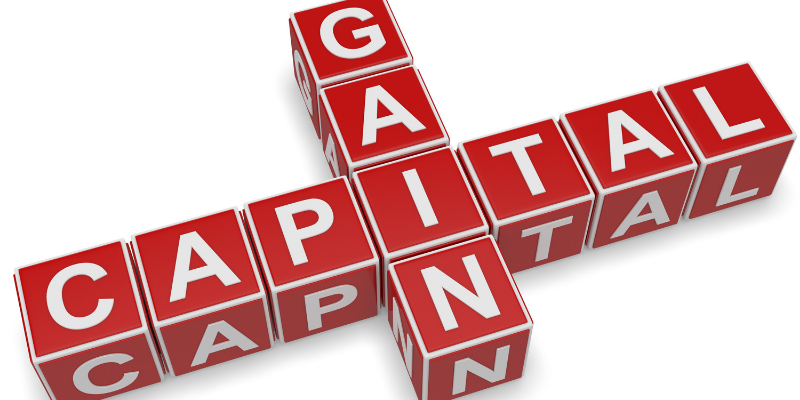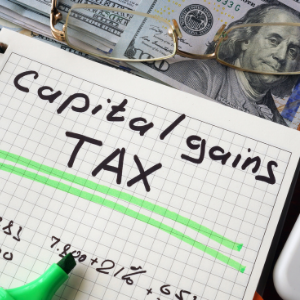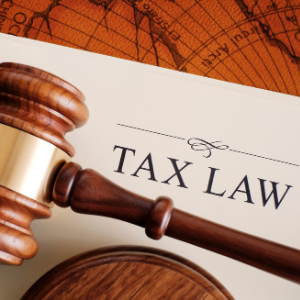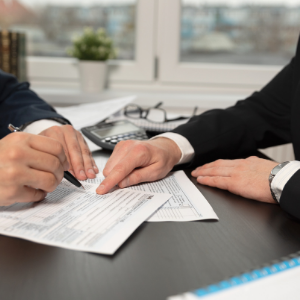
Navigating the complexities of capital gains tax after selling a house in Baltimore, MD, can be frustrating, but understanding these taxes is crucial for maximizing profits and ensuring compliance. This comprehensive Maryland guide explains the essentials of capital gains tax, including what it is, who is liable for it, and potential exemptions that may apply to your situation.
Whether you’re familiar with the law or looking for a straightforward overview, we’ve tailored this guide to equip you with valuable insights and actionable steps for a smooth property transaction, with a specific focus on how Baltimore’s rules may impact your financial outcome.
Key Highlights
- Understanding capital gains tax is pivotal in maximizing profits and compliance when selling a home in Baltimore, MD.
- Capital gains are treated as ordinary income in Maryland, which increases federal tax obligations and impacts net earnings from property sales.
- Utilizing gains exclusion for primary residences can significantly reduce taxable income, optimizing financial outcomes.
- Consulting a tax specialist before selling a property helps you effectively leverage deductions and navigate Maryland’s tax landscape.
- Transfer taxes play a crucial role in Baltimore real estate transactions, affecting both immediate costs and future tax implications.
Understanding Capital Gains Tax in Maryland
Navigating the complexities of capital gains tax is crucial for homeowners planning to sell their property in Baltimore, Maryland. Understanding how gains from a home sale are taxed is essential to ensure compliance and optimize financial outcomes. This section explores the nature of capital gains and their implications for property sellers in the region. It offers insights into what constitutes capital gains. It explains how these are treated under Maryland tax laws, equipping you with the knowledge needed to make informed decisions when selling your home.
| Asset Type | Capital Gains Category | Exclusion Limit | Tax Implications | Planning Strategies |
| Primary Residence | Short-Term & Long-Term | Federal: $250K (Single) / $500K (Married) | 5%-20% Federal; 5.75% Maryland | Reside 2 of last 5 years |
| Investment Property | Short-Term & Long-Term | None | Short-Term: Regular Income Rate; Long-Term: 5%-20% Federal | Consider 1031 Exchange |
| Secondary/Vacation Home | Short-Term & Long-Term | None | Same as Investment Property | Convert to Primary Residence if possible |
This table highlights how understanding capital gains tax and planning accordingly can significantly affect financial outcomes for home sellers in Baltimore.
What Are Capital Gains?

When real estate is sold at a profit, originating from the purchase price, the profit made is known as a capital gain, and the purchase price is referred to as the cost basis. These capital gains are also classified as short-term or long-term, depending on the holding period of the real estate. When the period exceeds a year, the profit is considered long-term and is typically taxed federally at more favorable rates. On the other hand, short-term gains are taxed at ordinary income levels, thus at very high rates.
Homeowners living in Baltimore, Maryland, for example, are significantly affected by the amount of tax due when selling a property as a capital gain. If a primary residence is being sold, the IRS allows a home sale exclusion of up to $ 250,000 for single filers and $ 500,000 for married couples filing jointly, as long as the seller has resided in the home for at least two years during the last five years. These rules can significantly lessen or even eliminate the taxable gain.
Nonetheless, Maryland imposes an additional layer of taxation. At the same time, Maryland capital gains taxes are generally lower than federal rates; the state taxes capital gains at the same marginal rate as ordinary income, which can further exacerbate tax liability. Knowing both federal and state tax laws is crucial for accurately determining the net proceeds.
For these types of properties, which include the selling of an investment property or second home in Baltimore, the process is different. These properties do not qualify for the primary residence exclusion and are fully taxable under federal and Maryland law. Investors often utilize tax strategies, such as the 1031 exchange, which allows them to defer taxes by reinvesting within a stipulated time frame, to overcome such hurdles.
To lower taxable gain, which is the amount gained from the sale of a property, an investor or a property holder must endure a substantial amount of time to keep thorough records of home improvements and renovations. This kept documentation can drastically reduce the amount of taxes one is bound to pay.
In summary, learning and fully understanding the workings of capital gains taxes and how they are applied within Baltimore enables both investors and homeowners to strategize their actions, thereby planning more efficiently. Raising the lower limit for taxable income while reducing the selling price of a home, within the parameters of Maryland law, is possible and can be achieved if an investor keeps track of property renovations and sells it while the market price is lower.
Implications of Capital Gains Tax for Home Sellers in Baltimore, MD
The capital gains tax influences the financial and selling strategies of property owners in Baltimore, particularly, and the state of Maryland as a whole. Selling a home today involves much more than simply putting a house up for sale. It means determining the impact of state and federal legislation on one’s income.
Maryland does not provide additional state capital gains exclusions. Any gain exceeding the federal exclusion of home sale capital gains, which is up to $250,000 for individuals and $500,000 for married couples, is taxed under the ordinary Maryland state income tax and lending. Since selling capital property is considered the same as selling ordinary property in Maryland, sellers should pay close attention to their marginal tax rates to estimate the total selling price of the property, including taxes payable at both the federal and state levels, as well as selling costs.
Failing to pay these sales taxes can result in unexpected and unfavorable tax liabilities. Fulfilling the prerequisite of determining the taxes payable and only distinguishing the taxable gain and the primary home exclusion is the only means of gaining. Homeowners who fail within these parameters stand to lose expectations and pay bills senselessly, which these individuals strive to avoid.
The 1031 Exchange is a form of tax deferral that can be beneficial for sellers because the gain on the replaced property doesn’t have to be taxed when they use the profits to buy a property. This option is primarily suited for investment properties; however, understanding its impact on your overall tax strategy is essential. It could drastically improve your financial bottom line.
Additionally, Baltimore residents must be aware of any state-specific documents and requirements related to tax filings, as well as any additional documentation that may be required beyond what the federal government mandates. A tax advisor in Maryland will ensure that regulations are followed and that appropriate deductions are utilized to minimize taxable income.
Tax strategy and calculation, which involves gain, exclusion, and deferral, result in less taxable income and, hence, a greater amount of profit retention for the homeowner. Understanding capital gain tax on real estate transactions in Baltimore financial transactions helps empower individuals with knowledge that results in a less complicated and more profitable sale.
Maryland-Specific Tax Considerations
Understanding Maryland’s tax framework is pivotal when selling your property in Baltimore. State tax laws not only impact federal capital gains tax implications but also add layers of complexity unique to each state. Understanding Maryland’s specific capital gains tax rate in relation to federal rates will prepare you for potential liabilities and assist in crafting effective strategies to minimize tax expenditures. This understanding of Maryland’s state tax laws, along with their comparative analysis with federal regulations, will equip you with the knowledge needed for informed decision-making when selling taxable assets.
Impact of State Tax Laws on Capital Gains

The capital gains tax on selling property in Baltimore is influenced heavily by Maryland state tax policies. While federal tax policies shift the treatment of gains based on income level and asset ownership duration, Maryland distinguishes itself by treating real capital gains as ordinary income under its state income tax regime. This suggests a greater tax liability than expected if a taxpayer only considers federal obligations.
Maryland does not offer additional capital gains tax exemptions beyond the federal limits, unlike some other states, which provide more capital gains exemptions for homeowners. Individuals and couples filing jointly may avail themselves of the fungible federal home sale exclusion of $250,000 and $500,000, respectively. Nevertheless, any remaining gains will still be taxed in Maryland and classified as ordinary income. The situation underpins the need for more robust and effective tax planning for capital gains in Maryland.
Tax compliance requires meticulous record maintenance, especially for Maryland residents. Documentation of home improvements, renovations, and selling costs can help increase the property’s cost basis, thereby reducing the taxable gain on the sale of the property. As Maryland taxes can be pretty complex, the expertise of a Maryland tax attorney can streamline Maryland taxation by identifying appropriate deductions, ensuring compliance, and maximizing profits after taxes are paid.
It is worth noting that for real estate investors, the situation is much more severe. Profits from investment properties are taxed at Maryland’s ordinary income tax, disregarding the special treatment given to primary residences. The distinction between a primary residence and an investment property can significantly alter your tax exposure and overall financial plan.
In conclusion, appreciating the nuances of Maryland’s capital gains taxation is advantageous for Baltimore property owners and investors. With prompt, meticulous, and professional planning, it is possible to minimize tax exposure and optimize profits for real estate transactions in the state of Maryland.
Strategies to Minimize Capital Gains Tax Liability
A thorough understanding of tax laws in Maryland can be beneficial in formulating strategies to minimize tax implications, particularly when selling a home in Baltimore, Maryland. Gain exclusions, if used correctly, can substantially reduce taxable income, thus improving net profits from your estate sale.
Also important is the timing of the sale of the investments. This can significantly enhance the management of tax liabilities, allowing sellers to take advantage of more favorable tax rates as mandated by federal law. Not only do these strategies enhance tax compliance management, but they also minimize tax outflows, thereby increasing the optimization of returns after sale.
Using Capital Gains Exclusion to Maximize Tax Benefits in Baltimore, MD
In Baltimore, Maryland, perhaps the most effective way of minimizing the capital gains tax associated with the home sale is to claim the home sale exclusion. This exclusion is a federal tax benefit that allows homeowners to exclude a significant portion of their capital gains from federal tax liability. This portion will vary depending on the eligibility.
If you have occupied the property as your principal residence for less than five years, you may qualify for this exclusion, which, if provided, is valuable. In Baltimore, single homeowners can exclude capital gains of up to $250,000, while married couples filing jointly can exclude up to $500,000. It is important to note that the IRS has delineated criteria to define “ownership and use,” thus, proper evidence of residency and ownership is a must to remain qualified.
You can also lower your taxable capital gain from the sale of property if you can prove that you have made capital improvements, which include adding onto your property, or whose cost improves your property’s adjusted cost basis. Such improvements also reduce the amount of tax payable on the profit made, and when combined with the exclusion, further optimize tax savings.
Unlike primary residences, investment properties are not eligible for the primary residence exclusion. Still, real estate investors can use other options, such as a 1031 exchange, which allows the deferral of capital gains tax on properties sold, provided the proceeds are reinvested in properties of equal or greater value. While this doesn’t eliminate tax, it certainly aids in the retention of investment capital, as well as fostering long-term growth of the investment portfolio.
Selecting the appropriate exclusion or deferral strategy for the sale of the commercial property ensures compliance with the corresponding tax regulations at both the federal and state levels, thereby maximizing the profits retained from the sale. Engaging a real estate professional or tax practitioner active in Baltimore can provide valuable guidance on optimizing the property’s value.
Timing Your Sale to Reduce Capital Gains Tax in Baltimore, MD
When you time the sale of your home, it can help you reduce capital gains tax and maximize your profit on the sale. It is the duration of your ownership of the house that determines whether the sale of your home will generate a short-term or a long-term gain. Properties held for longer than one year generate long-term capital gains, which are taxed at lower federal rates that range from 0% to 20%. Short-term gains, on the other hand, are taxed as ordinary income, which is usually on the higher side of the tax rates.
For Maryland homeowners, the capital gains state tax is blended with the income tax. Thus, the timing of your sale is essential. Selling your home in a year when your income is lower than your expenses, such as during retirement, is a good time to sell the house. It will help you reduce your tax obligation.
The tax advisor in Baltimore will look at your current financial condition and will suggest the time that would be most appropriate for you to sell to maximize the profit. They will help you understand Maryland state tax laws, enabling you to maximize your earnings.
Clearly, selling your home for as much as you can is one thing, but doing so efficiently is another. The essence of doing that is to pay as little as one can for taxes. That’s where proper planning comes in. In the context of selling your home, these planning processes can help ensure that the capital gains taxes you pay are minimal.
The Importance of Professional Financial Advice
Understanding the distinction of Maryland’s tax landscape, particularly in Baltimore, necessitates professional financial advice. Consulting with tax experts is essential as you navigate the complexities of capital gains tax. From selling real estate to managing investments, tax planning ensures optimized returns and minimized liabilities.
Engaging with a tax specialist provides understanding, enabling informed decisions and strategic financial planning. This section emphasizes the significance of expert guidance in managing tax obligations while maximizing profitability during property sales in Baltimore, Maryland.
When to Consult a Tax Specialist in Baltimore, MD

When selling a home in Baltimore, Maryland, it is essential to gain professional advice on the timing of capital gains tax and other aspects of the home sale process. Starting the home-selling process is crucial, so considering a tax consultation is a good idea, especially if it’s before any listing or a decision of high financial value is made. Having the advice at the beginning can help you frame a strategy to understand the tax implications, capital gains, and Maryland-specific tax policies, thereby informing your Maryland home tax plan.
A tax professional’s approach before selling the home gives you a standing to assess whether you can use the primary residence exclusion, which can help you eliminate or reduce taxable gains significantly. Additionally, a tax professional can determine/index expenses that can be deducted, utilize exclusion processes, and tax the process to the sale so that the sale exceeds the threshold.
You should also obtain professional counsel when significant life changes occur – e.g., marriage, divorce, or moving – since these changes might impact your tax obligations and deductions. Some professionals explain methods for deferring tax obligations on equity that can be applied to multiple properties, such as the 1031 exchange, for investment purposes.
In addition, request help from a tax professional in Baltimore regarding estate planning, local transfer taxes, and estate or other local tax matters that can be filed simultaneously to the State of Maryland and the Federal Government. Planning with a tax specialist streamlines your decisions, provides asset protection, and minimizes future tax liability.
Your home capital gains tax also impacts the profits and sale of your property. Real estate professionals with tax knowledge help Baltimore clients develop and implement tax strategies to achieve specific personal objectives. Those who need to sell a house in Baltimore fast should seek professional tax advice well in advance to ensure an optimal sale and that tax strategies are in place for the transaction.
If navigating complex tax rules and real estate paperwork feels overwhelming, CR of Maryland I LLC can help. As a trusted local cash home buyer, CR of Maryland I LLC makes it easy to sell your Baltimore house fast for cash—no repairs, no realtor fees, and no waiting. They also buy houses for cash in Towson and nearby cities of Catonsville, Essex, Dundalk, and Parkville, offering fair and competitive cash offers with quick closings.
Whether you’re facing tax issues, need to relocate fast, or simply want a hassle-free sale, CR of Maryland I LLC provides a smooth and profitable way to sell your home—helping you move forward with confidence and peace of mind. Contact us at (443) 278-2743 today!
Frequently Asked Questions
What is a capital gain tax?
A capital gains tax is a type of tax on the appreciation of an asset and the profit earned when an asset is sold, such as real estate, after it was purchased for a lower amount. It is the profit made after the asset is sold. It is taxed on a gain earned within a financial year, and holding it for profit-making purposes is categorized as either short-term or long-term gain.
What is the treatment of capital gain tax on the sales of property in Maryland?
Maryland imposes a capital gains tax on sales of property and considers it to be a form of ordinary income. It is income subject to the state tax in addition to being federally taxed. This makes financial gain planning an essential aspect of property sale to reduce its taxable amount.
What profits and exclusions on capital gain tax are offered to owners of a primary residence?
A home-owning couple is eligible to claim benefits up to $500,000 of capital gains as opposed to a single claimant up to $250,000, which is tax earned based on profits from the sale of the primary residence. This is a joint benefit for both spouses, allowing them to claim tax benefits when filing together. Some conditions apply, such as using the residence as a primary home for at least 2 years within the last 5 years.
Is there any value in attaching a tax they know specializes in to a home seller in Baltimore, MD?
Balancing the Maryland tax system with a tax specialist’s knowledge is far more effective than attempting it alone, especially with the guidance they provide on deductions, exclusions, and strategies for timing the discharge of tax obligations.
What is the significance of the transfer taxes in the Baltimore real estate market?
In Baltimore, the transfer tax on the conveyance of property, together with the title to it, is paid to both the State and the municipality in parallel. For sellers, it is crucial to understand these requirements, particularly in conjunction with the closing of the deal, as they have bearing on the outgo at settlement and subsequent taxation as well.
Helpful Baltimore Blog Articles
- Selling Your House Without A Realtor In Baltimore, MD
- Selling An Inherited House In Baltimore, MD
- Navigating Home Sales During Divorce In Baltimore, MD
- Selling A House With Tenants In Baltimore, MD
- Tax Implications Of Selling Your Home In Baltimore, MD
- Selling A Baltimore, MD, Home With Title Issues
- Sell A Foreclosure House In Baltimore, MD
- Selling A Baltimore, MD Home Needing Repairs
- Selling a Probate House in Baltimore, MD
- Tips to Sell Your Baltimore, MD House Amid Mold Concerns
- How to Remove a Name from a Deed in Baltimore, MD
- How to Sell a Fire-Damaged House in Baltimore, MD
- Capital Gains Tax After Selling a House in Baltimore, MD
